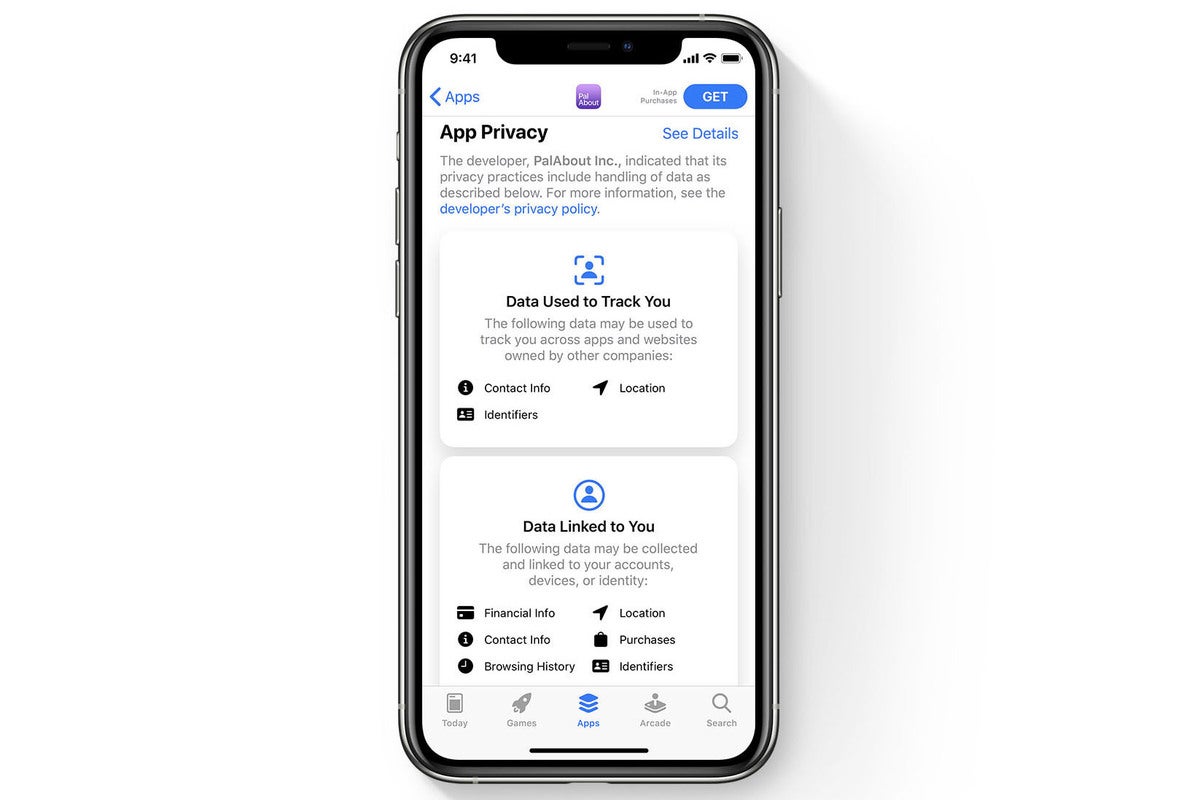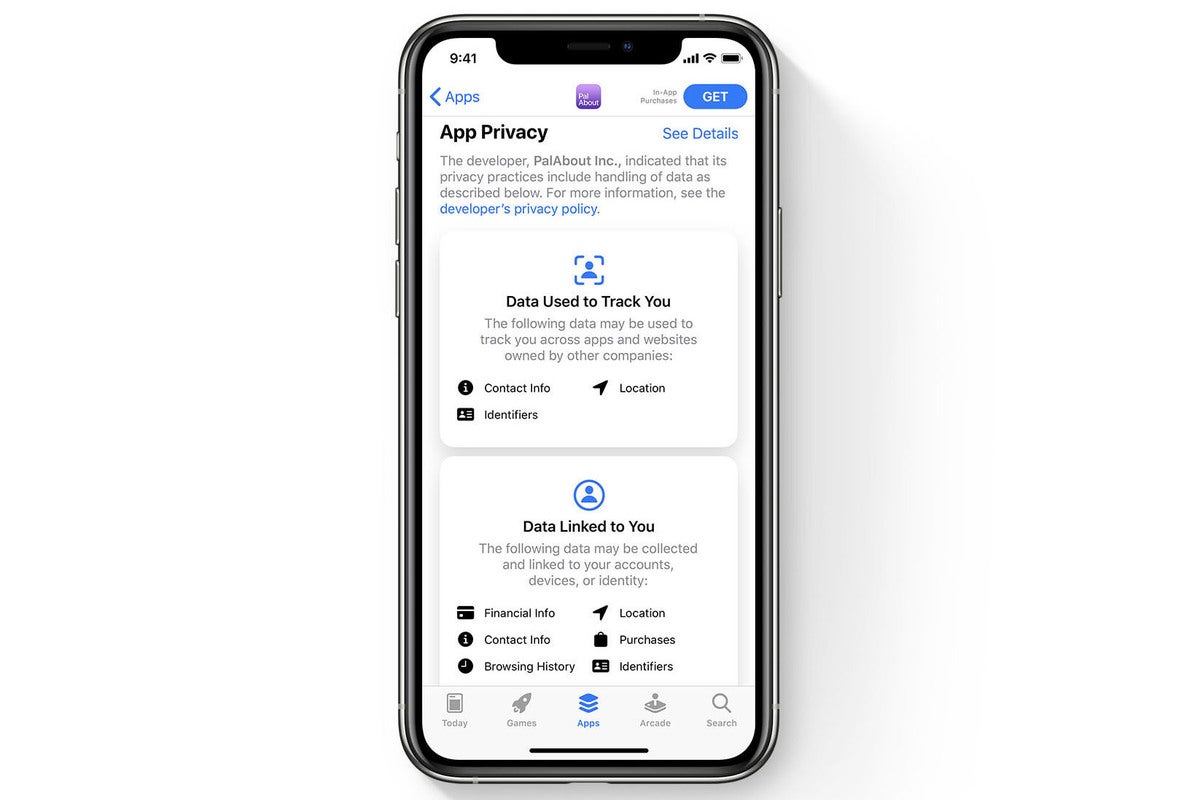
War against Apple by Facebook has officially begun, with the social media giant spending some of its user data-targeted ad revenue on a series of press ads against the computer company, presumably because using its own platform to spread such claims may fall foul of anti-trust law.
You are the product
Facebook is making the usual hyperbolic arguments around “standing up for small business” and “making sure the internet stays free,” though it isn’t entirely clear when Facebook became “the internet,” or why we as users aren’t paid for the provision of the personal data on which the social mediam company builds its business.
At issue is an improvement in iOS coming next year that requires developers to secure user permission before they can track them across apps. This improvement helps you maintain your security and has no impact on the sale of targeted advertising that exploits Facebook’s existing user data.
Facebook already takes a lot of data. Scoot over to the Facebook app listing on Apple’s App Store and you’ll find a Privacy Nutrition report that’s pages long.
Jane Horvath, Apple’s global director of global privacy, has said:
“Facebook executives have made clear their intent is to collect as much data as possible across both first- and third-party products to develop and monetize detailed profiles of their users, and this disregard for user privacy continues to expand to include more of their products.”
Apple’s argument is much simpler: Users have a right to know if their data is being exfiltrated by an app or service that they use, and why.
“We believe that this is a simple matter of standing up for our users,” Apple said in response to Facebook’s press ads.
“Users should know when their data is being collected and shared across other apps and websites – and they should have the choice to allow that or not. App Tracking Transparency in iOS 14 does not require Facebook to change its approach to tracking users and creating targeted advertising, it simply requires they give users a choice.”
Facebook’s counter argument seems to be that the giant social media firm needs to be able to track billions of users across multiple apps so it can support a burger shop in San Francisco, or something.
What’s at stake?
You are. In the background, sits the rather amazing fact that iPhones running iOS 13 or iOS 14 are now in use by around 10+ percent of the planet’s human population.
(Apple’s latest usage statistic claims 90% of all iPhones in use today are on iOS 13/14, and with an estimated billion iPhones in use that’s a lot of people.)
These are people using their mobile devices for a range of different tasks, almost certainly including a big chunk of enterprise users — and with the modern enterprise very much a data-driven enterprise it’s pretty clear why Facebook is putting up a struggle.
With mobile devices spanning both the personal and professional space, the service is surely grabbing enterprise-specific data just as much as it does personal. Why else does it offer Workplace?
With this in mind, many enterprises already forbid use of Facebook at work. Information is power. Don’t give it away.
In any case, despite Facebook’s protestations, it is important to understand what Apple isn’t saying: It is not banning personalized advertising on its platforms, it is simply demanding that entities (including Facebook) who choose to subject their users to information-gleaning systems give users a transparent choice and also let them choose to opt in or out of tracking between apps.
Choice means letting people know what data is being taken, and what that data is being used for. It also means giving people oversight into what happens to that information once it is taken.
It doesn’t (yet) give users the right to limit subsequent sale of that data once it is seized, though perhaps there’s some way to achieve that in future. I hope so.
Facebook and others argue that empowering users with such choice will damage their business. I shed no tears for them on this.
The evolution of the internet
Capitalism is often alleged to provide a flexible economic model capable of transforming itself in response to change. The change Apple is imposing means many of us will simply avoid using privacy-destroying services.
Yes, some services will need to become fee-based to operate, though the free and private MeWe service shows that Facebook-like social media can be provided without the ads tracking. And yes, change also means services that currently subsidize themselves with personal data without offering users transparency may collapse in the event they have no intrinsic value other than the cash they create using other people’s data.
Most companies will simply change their approach,
We know there’s a cultural shift in consumerism. We know ethical consumers are growing increasingly powerful in the market, they care about values, care about the environment and they also care about privacy.
They want transparency and control and Apple wants to provide this to them. Apple does not want developers invading user privacy in the absence of transparency. I don’t think that’s at all unreasonable.
You don’t buy a car without checking the product manual, so why should you use an online service without being empowered to give it the same kind of deep oversight?
It’s also good for business
Apple’s decision to make privacy transparent across its platforms is actually great for business. It helps create a much more level playing field, in which those services that don’t tax your data get a better chance at visibility when competing against wealthier firms who do exploit personal information.
Given choice, users will avoid or quit using services that ask for too much personal data and will choose alternative services that ask for less. With luck, this will generate new competition in the social media marketplace, which (so free market types like to claim) should raise all the boats and help create an environment that stimulates further innovation in the space.
Of course, helping nurture business environments is something Apple does pretty well — it claims to be responsible for creating and supporting 2.4 million jobs across the U.S.. The PC industry has generated a huge amount of business and employment since the first ever Macintosh made its own debut.
One more thing
It is interesting to note that both Facebook and Epic are teaming up in this fight. Given what I see as the weakness of their arguments, I can’t help but imagine that part of what binds the firms together is that both recognize Apple will compete with them in the AR sector.
If that’s true (and this is speculation) I’m willing to imagine the two firms hope to foster an environment in which Cupertino is in some way constrained in order to protect their own ambitions in that space.
The real world fight to dominate augmented reality will be one of the defining elements of Apple’s story in 2021-2022 as its greater game plan emerges from the labs.
Signing off: I won’t be allowing services to track me between apps, and recommend that any user, including enterprise users, do exactly the same. And the only way to access Facebook is via a browser, never the app.
Also read:
Please follow me on Twitter, or join me in the AppleHolic’s bar & grill and Apple Discussions groups on MeWe.



